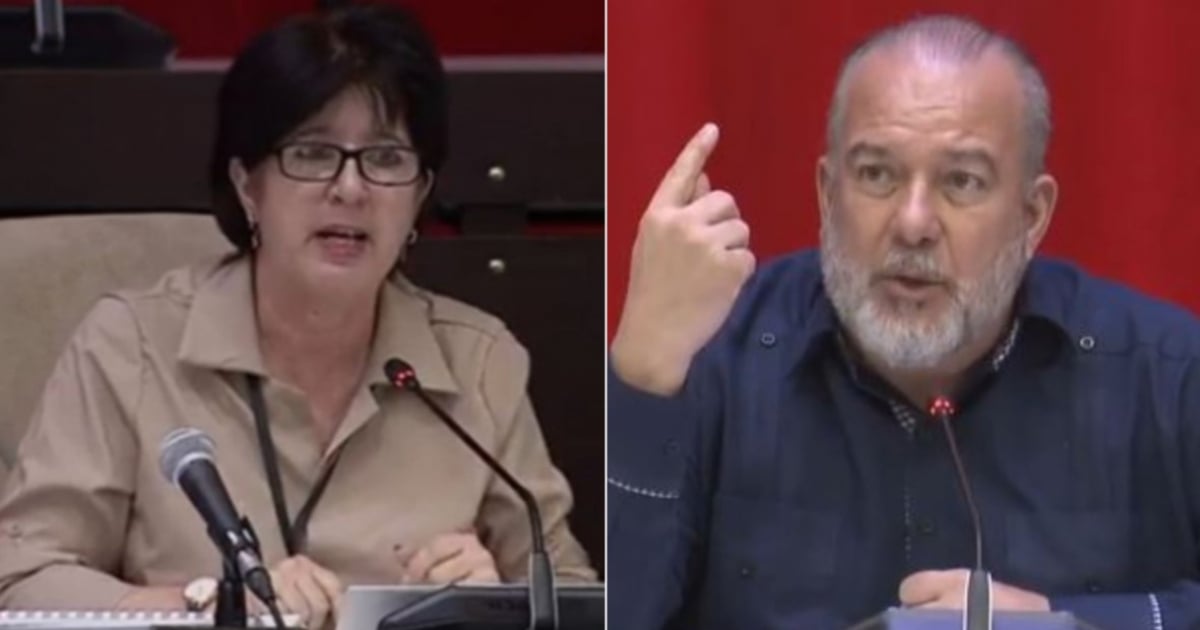Cuban Prime Minister Manuel Marrero Cruz joined the fray on Tuesday with belated and ambiguous criticism of recent comments made by Labor Minister Marta Elena Feitó Cabrera. Her denial of the existence of beggars in Cuba and her criminalization of poverty have sparked widespread outrage both within and beyond the island.
In a series of tweets from his official account, Marrero asserted that caring for vulnerable individuals "has always been and will continue to be a priority of the Revolution." He urged against being "superficial" when examining issues like homelessness. Additionally, he emphasized that sensitivity to vulnerability "cannot be mere rhetoric; it must translate into action," defending his government's efforts to ensure that no Cuban is left without support.
Nevertheless, Marrero's comments come in response to a torrent of criticism on social media and a similarly vague statement from Miguel Díaz-Canel. Many see this as a new official narrative aimed at damage control without acknowledging political responsibility or implementing real consequences.
Attempt to Extinguish the Political Fire Without Apologies
Marrero's message is widely viewed as an attempt to put out the political fire ignited by Feitó's remarks. On Monday, during a parliamentary committee meeting, she claimed there are no beggars in Cuba, but rather people "disguised" as such who choose an "easy life" over working.
Her statements not only denied the visible poverty on Cuban streets but also mocked those who scavenge in garbage, clean car windshields at traffic lights, or beg, labeling them as "illegal self-employed workers."
These comments sharply contrast with data from the Cuban Observatory of Human Rights, which estimates that 89% of households on the island live in extreme poverty. They also conflict with official statistics she presented in February to Díaz-Canel, acknowledging that more than 1,200 Cuban communities live in dire conditions.
Social media has been a hotbed of overwhelming rejection, not just toward the minister but also toward the political system that allows for such dehumanizing discourse. Intellectuals, artists, journalists, and ordinary citizens have reacted with anger and sorrow. Musician Dagoberto Pedraja shared images of people sleeping among trash. Comedian Ulises Toirac condemned the criminalization of poverty. Activist Yuliet Teresa recounted meeting a mentally ill woman sleeping in a doorway, declaring, "One does not sleep disguised as a beggar but with a soul shattered by poverty."
Actor Luis Alberto García criticized the complicit silence of the parliament: "Not a single deputy challenged the minister. We're headed in a very wrong direction, Camilo."
The public demands not only a public apology but also real policies, concrete actions, and, above all, respect for the dignity of those who suffer. However, neither Díaz-Canel nor Marrero has apologized to the Cuban people. None of the high-ranking officials have acknowledged the real existence of begging, nor have they announced effective aid programs, much less initiated an accountability process for the minister.
As journalist Yirmara Torres aptly summarized: "Are they never going to apologize to the Cuban people?"
Understanding the Cuban Government's Response to Poverty
What triggered the outrage over the Labor Minister's remarks?
The outrage was triggered by Labor Minister Marta Elena Feitó Cabrera's denial of the existence of beggars in Cuba and her comments that criminalized poverty, which many found dehumanizing.
How did Prime Minister Marrero respond to the controversy?
Prime Minister Manuel Marrero Cruz addressed the controversy by emphasizing the government's commitment to vulnerable individuals and advocating for action over rhetoric, though his response was seen as part of an attempt to manage the political fallout without taking responsibility.
What are the public's demands following the minister's statements?
The public is demanding a formal apology, real policy changes, concrete actions to address poverty, and respect for the dignity of those affected by it.
